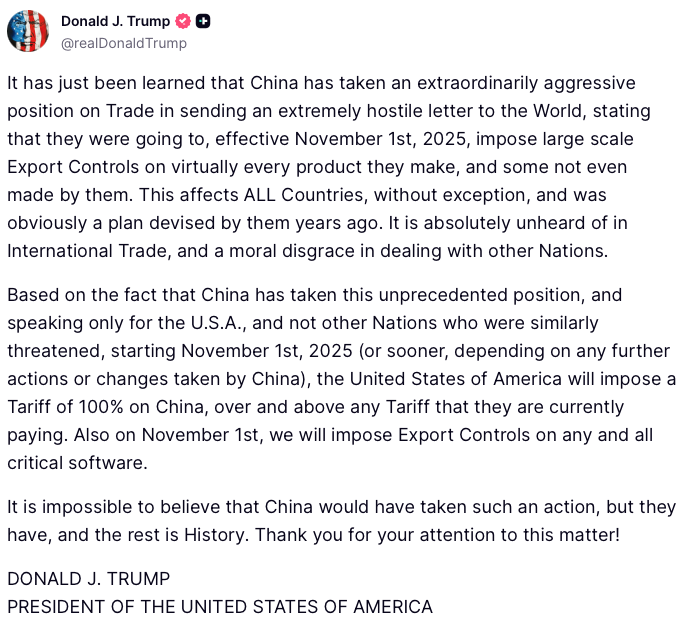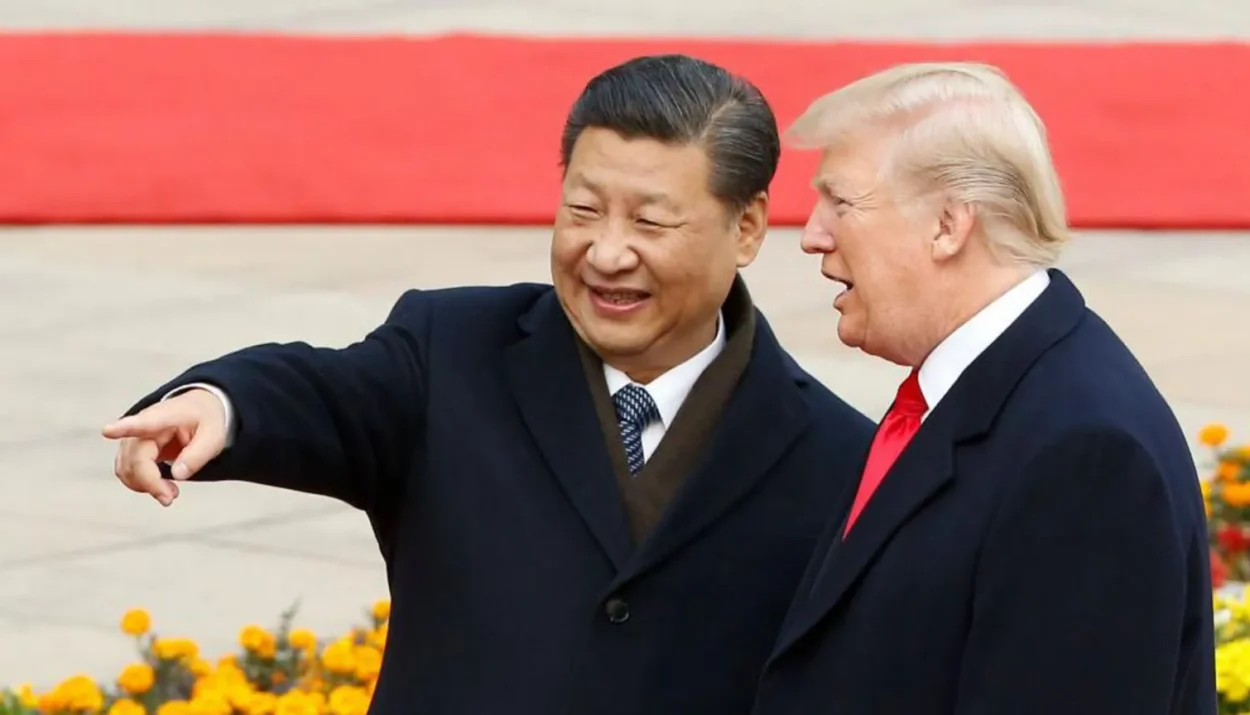The uneasy truce between the world’s two largest economies has officially collapsed. President Donald Trump reignited the US–China trade war on Friday, announcing a 100% tariff on all Chinese imports and new export restrictions on critical US software, effective November 1.
The move came in direct response to Beijing’s decision to tighten exports of rare earth elements—materials essential for producing everything from electric vehicles to fighter jets.
“It was shocking,” Trump told reporters. “They’re becoming very hostile.”
The president said the US would respond “financially,” calling China’s export policy a “hostile order.”
Markets React Sharply
The announcement rattled global markets.
- The S&P 500 tumbled 2.7%, marking its worst day since April.
- Investors fled to gold, which surged above $4,000 per ounce, while the US dollar weakened and Treasury yields fell.
- Tech stocks took a heavy hit, led by Apple, Microsoft, and Boeing, with Trump hinting that even airplane exports could face new controls if tensions worsen.
“When the oil comes down, everything comes down,” Trump said, adding, “Not the stocks… please!”
More: Crypto liquidations near $10 billion in historic drawdown
Trump-Xi Meeting in Doubt
The escalation casts doubt over the planned Trump–Xi summit in South Korea later this month.
“I haven’t canceled,” Trump said. “I’m going to attend the summit… might as well meet with him.”
However, he suggested the meeting could still be scrapped depending on China’s response, saying, “We’ll see. That’s why I set it to November 1.”
Beijing has not confirmed whether Xi intends to attend.

A New Phase of Economic Warfare
Trump’s latest measures include:
- 100% tariffs on all Chinese goods beginning Nov. 1.
- Export controls on critical US software, particularly for AI and cloud computing.
- Potential restrictions on aircraft and defense components.
The Commerce Department is reportedly mapping out additional targets, signaling that more export bans could follow.
Experts warn that the new restrictions could cripple China’s tech ambitions and strain US manufacturers dependent on rare earth imports.
“Beijing appears to have overplayed its hand,” said Craig Singleton of the Foundation for Defense of Democracies, noting that Washington views China’s export moves as a betrayal of May’s fragile détente.
Broader Implications
China currently produces over 90% of the world’s processed rare earths, giving it powerful leverage in the global supply chain.
Trump’s retaliation marks the biggest rupture in relations in six months, with analysts warning it could ripple through semiconductors, EVs, and defense industries worldwide.
“Nothing makes America move like targeting our defense industry,” said Gracelin Baskaran of the Center for Strategic and International Studies, calling China’s move “a direct challenge to US industrial security.”
Trump’s 100% tariff threat has shaken Wall Street and global trade confidence. With rare earths at the center of this new economic battlefield, the next three weeks will determine whether the world’s two largest economies de-escalate—or plunge into another full-scale trade war.
If Trump’s words are any clue, the answer may depend on what happens before November 1.
Disclosure: This article does not represent investment advice. The content and materials featured on this page are for educational purposes only.










